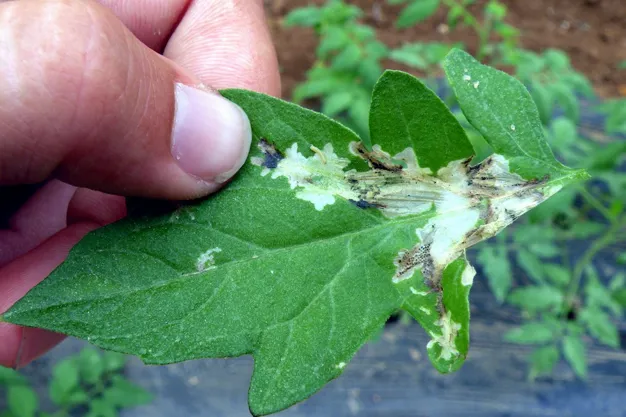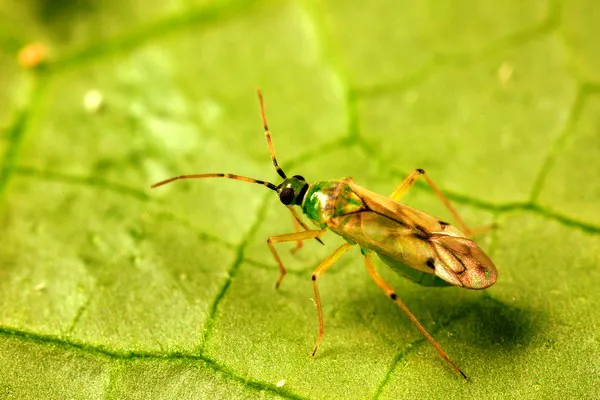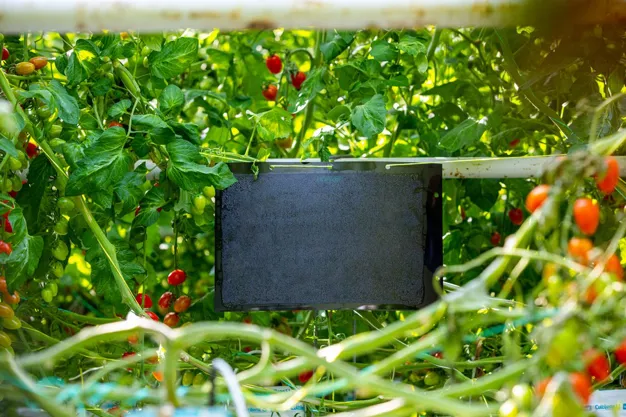According to the team of Koppert, boosting the doses of the predatory bug Nesidiocoris tenuis (Nesibug) is currently the best strategy to protect tomato crops against Tuta absoluta, which has stayed throughout the year due to the higher average temperatures during the winter, for instance. "The reinforcement releases of Nesi will always depend on the current population level and how it settled. In those cases where the Nesi's settling has been optimal, it will be necessary to at least provide extra feeding during the winter months to keep its vitality and egg-laying capacity in good condition."

Larvae of Tuta absoluta on a tomato leaf.
"Providing extra feeding is the best strategy to mitigate the effects of the cold and ensure that the reproductive capacity of Nesidiocoris does not decrease during winter. To achieve this goal, Koppert recommends implementing a feeding program with Entofood (eggs of the moth Ephestia kuehniella and artemia cysts applied on the tomato plants). Extra feeding with Entofood is also essential if reinforcement releases are carried out, as it is crucial to provide Nesidiocoris with a reliable food source during the months when the natural presence of Tuta is scarce."

Nesidiocoris tenuis, natural enemy of Tuta absoluta.
Increases fertility
"Entofood releases should be carried out especially around the softest parts and in areas where the plant receives the most light, because those are the places where Nesidiocoris prefers to live. In this way, the natural enemy of Tuta receives a very nutritious food, pure protein. It has been proven that Entofood increases the fertility of females; therefore, with this extra feeding, it is possible to increase the number of egg layings and, by spring, the population of Nesidiocoris will be much larger."
"Koppert recommends completing the preventive biological control strategy against Tuta in tomatoes with Horiver black traps, preferably placed near the ground, to capture adult specimens. It is also advisable to plant Lobularia maritima plants, marketed by Koppert, to encourage the spontaneous presence of Necremnus tutae, a parasitoid wasp of Tuta larvae."

Horiver black adhesive trap that especially attracts Tuta absoluta.
 For more information:
For more information:
Koppert
www.koppert.es
